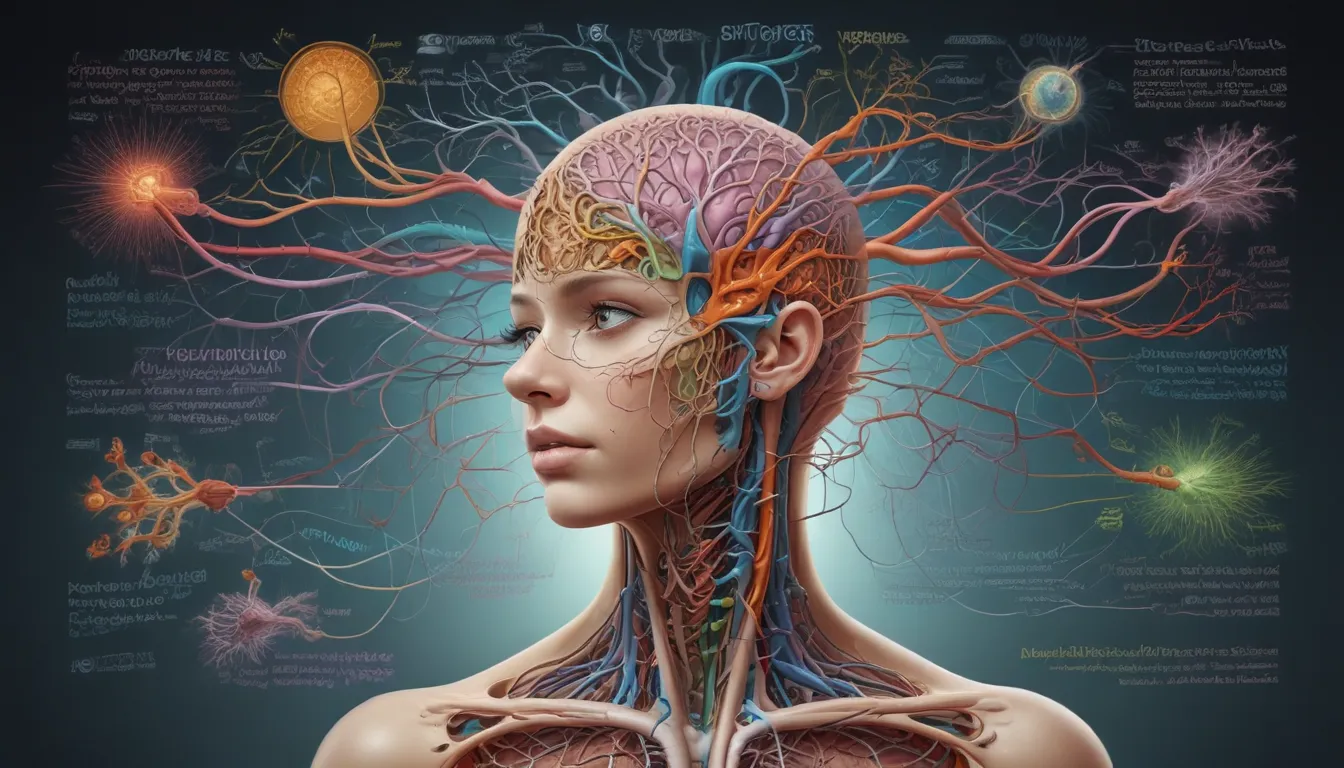A Note About Images: The images used in our articles are for illustration purposes only and may not exactly match the content. They are meant to engage readers, but the text should be relied upon for accurate information.
Welcome to the world of the autonomic nervous system, a complex and intriguing part of our bodies that silently manages vital bodily functions. From heart rate to digestion, this system works tirelessly behind the scenes to maintain our well-being. Let’s embark on a journey to uncover the enigmatic facts that make the autonomic nervous system such a crucial component of our health.
Unlocking the Secrets of the Autonomic Nervous System
At the core of our body’s regulatory functions lies the autonomic nervous system (ANS), responsible for overseeing processes like heart rate, blood pressure, digestion, and breathing. Without us even realizing it, the ANS ensures that these functions operate smoothly, allowing us to focus on our daily activities while it maintains the delicate balance needed for our overall health.
The Symphony of Sympathetic and Parasympathetic Branches
Within the ANS, two branches work in harmony: the sympathetic and parasympathetic nervous systems. The sympathetic branch gears up the body for action and stress responses, known as the “fight or flight” reaction. In contrast, the parasympathetic branch promotes relaxation and restoration, triggering the “rest and digest” response essential for recuperation.
The Command Center: Brainstem and Spinal Cord
Controlled by centers in the brainstem and spinal cord, the autonomic nervous system receives signals from the brain and sensory receptors. These command centers meticulously manage and coordinate autonomic functions, allowing for precise adjustments in response to varying internal and external stimuli.
Emotion, Stress, and the ANS
Emotional responses are intricately intertwined with the autonomic nervous system. It plays a pivotal role in the release of stress hormones, heart rate modulation, and breathing pattern alterations during emotionally charged situations, showcasing the intimate connection between our feelings and bodily functions.
Autonomic Dysfunction and Health Conditions
Disruptions in the autonomic nervous system can pave the way for various health issues. Conditions like hypertension, gastrointestinal disorders, and cardiovascular diseases can be linked to autonomic dysfunction, emphasizing the critical role this system plays in maintaining our overall well-being.
Vision and Body Temperature Regulation
Delving deeper into its functions, the autonomic nervous system controls processes like pupil constriction and dilation as well as body temperature regulation. Adapting to changing environments, the ANS orchestrates adjustments to ensure optimal visual acuity and internal temperature stability.
Digestion, Metabolism, and Sexual Function
The autonomic nervous system exerts influence over digestion, metabolism, and even sexual function. While the parasympathetic branch enhances digestive processes, the sympathetic branch temporarily inhibits digestion during stress responses, showcasing the intricate dance between bodily functions.
Mind-Body Connection: Modulating the ANS
Harnessing the power of mind-body practices like deep breathing exercises, meditation, and yoga can effectively modulate the autonomic nervous system. By activating the parasympathetic branch, these practices promote relaxation, reduce stress, and enhance overall well-being, showcasing the profound impact of our mental state on our physical health.
The Path to Understanding and Innovation
In conclusion, the autonomic nervous system emerges as a captivating and indispensable element of the human body. By unraveling its mysteries and comprehending its intricate mechanisms, we gain a deeper appreciation for the silent orchestration of our bodily functions. As we continue to explore and innovate, we hold the key to developing innovative treatments for autonomic disorders, ultimately enhancing the lives of individuals worldwide.
Frequently Asked Questions
-
What is the autonomic nervous system?
The autonomic nervous system oversees involuntary bodily functions, ensuring our essential processes run smoothly. -
How is the autonomic nervous system divided?
The autonomic nervous system consists of two branches: sympathetic and parasympathetic, each responsible for distinct functions. -
What role does the sympathetic nervous system play?
The sympathetic nervous system readies the body for fight or flight responses in stressful situations, priming us for action. -
How does the parasympathetic nervous system function?
The parasympathetic nervous system conserves energy, supporting rest and digestion to promote recovery and relaxation. -
Can stress impact the autonomic nervous system?
Yes, stress can significantly influence the autonomic nervous system, triggering heightened responses that affect overall balance and well-being. -
Are there disorders associated with the autonomic nervous system?
Yes, conditions like orthostatic hypotension, dysautonomia, and autonomic neuropathy are examples of disorders that can disrupt autonomic functions. -
How can I maintain a healthy autonomic nervous system?
Maintaining a healthy lifestyle, managing stress effectively, practicing relaxation techniques, and seeking medical guidance for any concerning symptoms are key steps in supporting a healthy autonomic nervous system.
With each fact unveiled and every exploration undertaken, we deepen our understanding of the autonomic nervous system’s profound impact on our lives. Through ongoing research and a commitment to unlocking its marvels, we pave the way for groundbreaking advancements and transformative treatments that enhance our well-being. So, next time you notice your body responding to its surroundings, remember the remarkable work of the autonomic nervous system, silently but efficiently ensuring your health and vitality.






